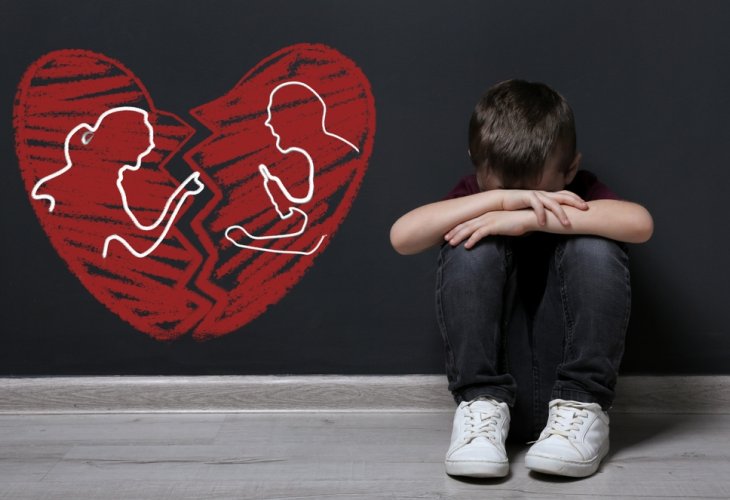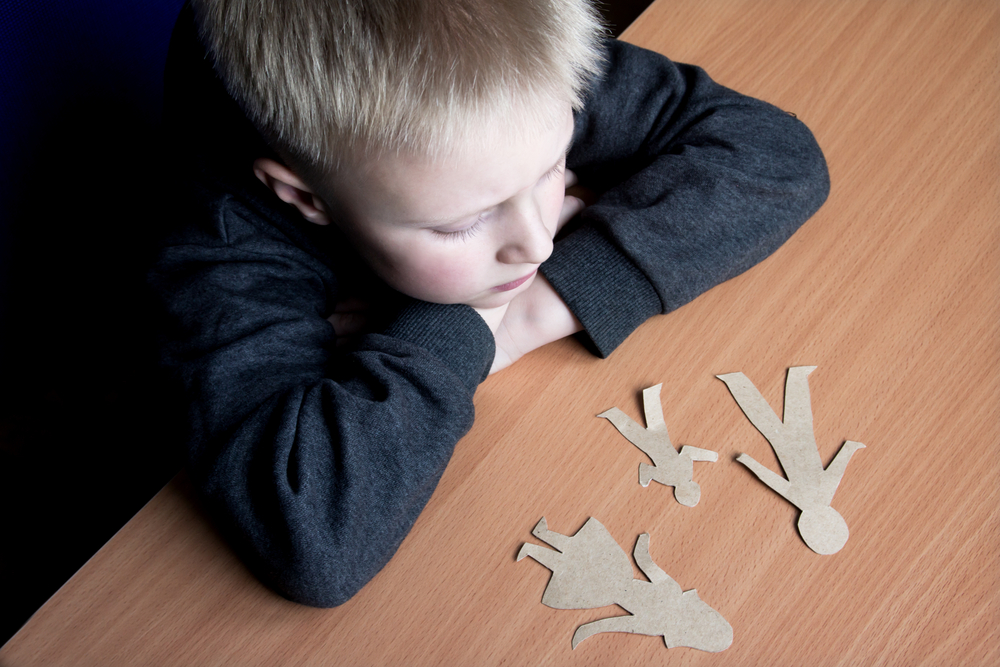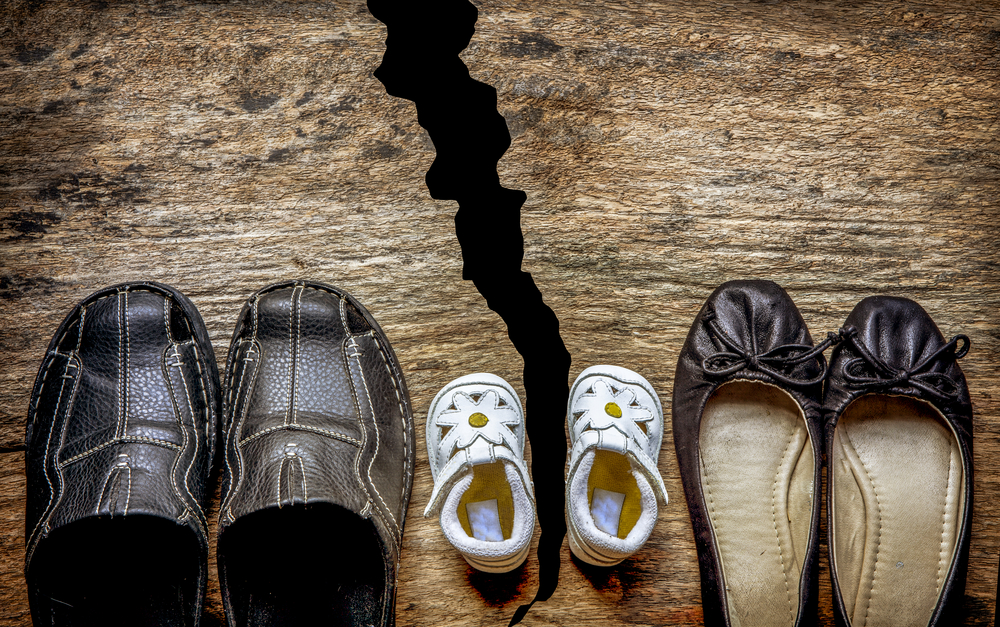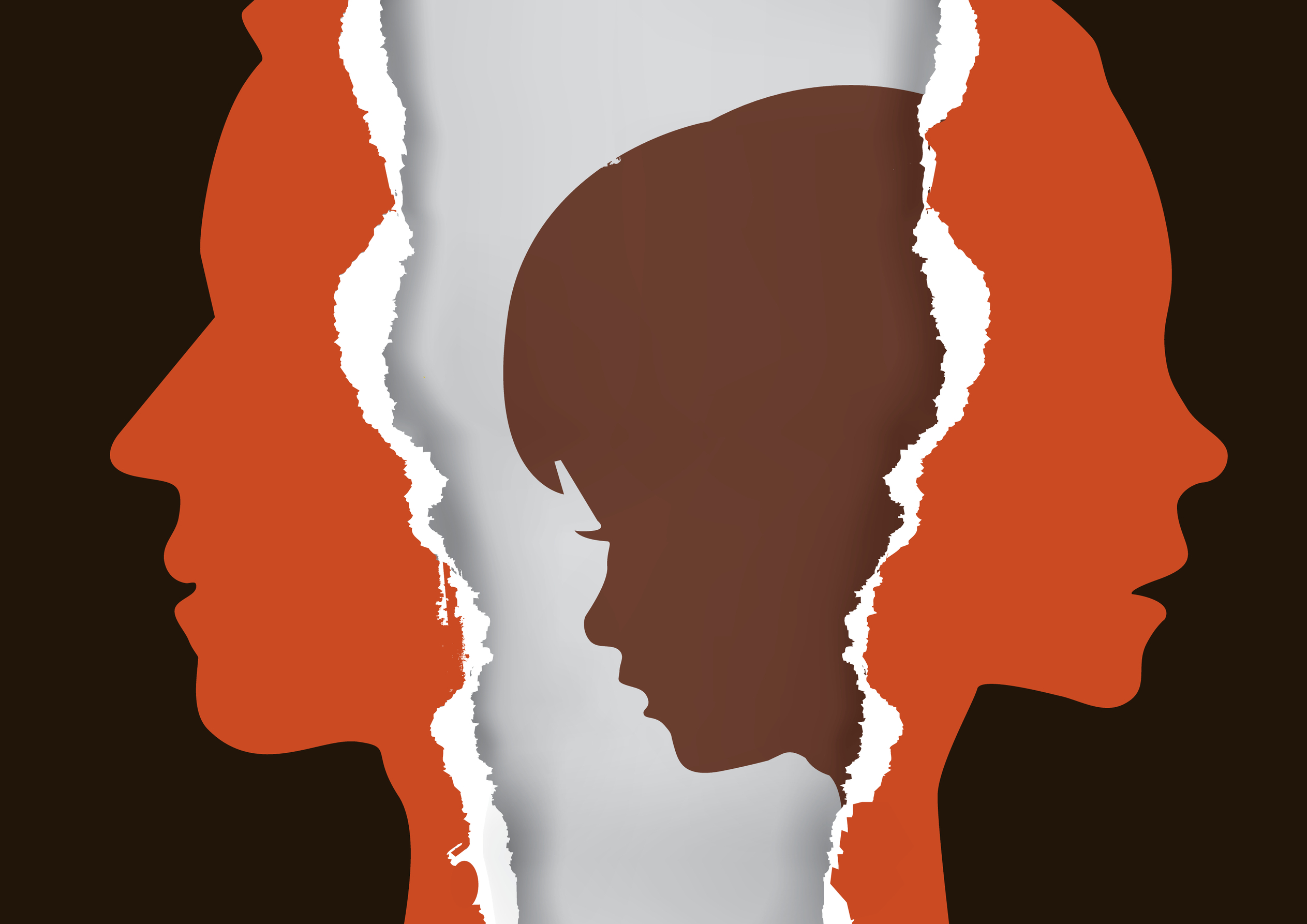I Realized It Was Like Turning a Parent Bereaved and a Child Orphaned — While Both Are Alive
It happens all around us: parents embroiled in conflict or divorce proceedings choose to alienate their children from the other parent. Attorney Pinina Yizhaqel-Kachlon, founder of the Committee for Addressing Parental Alienation and False Accusations, speaks about the story that broke her heart, the severe psychological damage inflicted on children, and the truth that always emerges and changes everything.
 (Photo: Shutterstock)
(Photo: Shutterstock)Pinina Yizhaqel-Kachlon was already quite experienced in her field as a family law attorney, and truthfully, also quite seasoned. But this case she encountered was one that deeply touched her: one day, she received a call from a man, a father of three, divorced for several years during which, according to him, he endured ongoing hell, and he sought her help. He claimed his wife falsely accused him of being violent towards the children to create distance between them, and he couldn't bear the sorrow caused by the distance from his children. "After so many years of experience in the field, you develop quite a keen eye for people," she describes. "And when I looked at him and listened to his story, something didn’t add up, and I felt I needed to help him. Over time, I discovered how right I was. I understood he was truly worthy of the title 'Father of the Year'."
The path from there wasn’t short, but eventually, his innocence was proven beyond any doubt, after he himself had endured years of abuse from his wife, along with the children, in addition to the slander that was completely false. This also marked her first significant personal encounter with a common phenomenon that often occurs between parents and children, particularly among divorced couples: the story of parental alienation.
 (Photo: Shutterstock)
(Photo: Shutterstock)What exactly is parental alienation, aside from being a phenomenon we've been hearing quite a bit about in recent years?
"This is a phenomenon that occurs when one parent, mainly among divorced parents, decides to 'possess' the children and distance the other parent from their lives. It can occur towards a specific child or all of them, out of a desire to isolate or distance the other parent through various means: it can be through incitement, even through seemingly gentle ways, which are actually a form of manipulation.
"For example, in cases of divorced parents, when there's suddenly a trip or attraction at one parent's house, and he wants the child to participate, but he actually prevents the child from maintaining the visitation schedule with the other parent as established. And if the opposing parent insists on maintaining the arrangements as established—the other parent uses it to incite the child against them, telling them that the other parent deprives them of the joy of the trip. This is an example of one of the easier cases. Sometimes children are incited against the other parent with much more serious allegations, which are, of course, mostly baseless.
 (Photo: Shutterstock)
(Photo: Shutterstock)Why does it happen, essentially?
"Sometimes the reasons can be hatred, jealousy; sometimes the other parent remarries, for instance, causing jealousy. Sometimes there are motives related to distancing or incitement due to religious reasons, such as when one side changes their lifestyle—in cases of leaving religious observance or becoming more religious—and it comes from an ostensibly protective intention towards the child. In such cases, parents fight a 'religious war,' and thus all means become justified and valid for the cause. Over time, I learned that this is a widespread phenomenon in families, even among the best families, and it completely crosses sectors."
The issue of parental alienation, beyond causing tension and anger between the parents, can cause simple, and perhaps even primary, mental harm to the child. "It's crucial to understand that merely distancing the child from one parent and inciting them—this in itself is already a profound injury to the child's psyche," explains Yizhaqel-Kachlon. "Here, a child is orphaned from a living parent, and the parent becomes a bereaved parent while alive. Sometimes it gets to the point where the child doesn’t invite the alienated parent even to their wedding, as if they were dead...sometimes even a second generation of estrangement occurs, where they are not even invited to the grandchild’s circumcision ceremony, and they don’t know them at all. Very sad.
"There were cases where one parent tried to alienate against the other, and it succeeded for a few years, and the children were with them. But after several years, when the children understood that what they were told was a lie and learned the truth, they simply severed ties with the inciting parent.
"This upbringing to disrespect parents, jealousy, and disdain—harms the child who feels defective because their parent is defective. The child projects this directly onto themselves. The child also learns hatred, of those closest to them—what repercussions this can have on their character traits and personality development. If a child hates their parent, regardless of Jewish law, where a child is obligated to honor their parents, there is gratitude and manners at play here. What kind of child are we raising here? What values and personality will they have? Moreover, sometimes it 'backfires' precisely on the alienating parent who taught them to hate—because the trait is ingrained in the child. It can affect us even more significantly, as a corrected society, where children growing into people will shape the community.
How does an alienated parent feel?
"There is nothing more horrible than a parent losing their child; they are like a bereaved parent. Sometimes a parent cannot bear this and feels that death is preferable to life, leading to serious depression. There was a case recently of a father’s suicide after being estranged from his children, unable to bear the sorrow or false accusations against him, and he wasn't the only one. On average, 200 men commit suicide each year, most were in the process of divorce."
"I Felt This Issue Was in My Soul"
And from thought to action: in 2014, Attorney Yizhaqel-Kachlon first established the Committee for Addressing Parental Alienation and False Accusations under the Bar Association. "I saw firsthand the harm caused: both false accusations and parental alienation are two incomprehensible wrongs, something very difficult with long-term, far-reaching effects, both on us as a society and on children in Israel. I see this as a serious attempt to sabotage the most basic connection a child needs: the warm and supportive relationship with both parents, and the attempt to portray one of them as a harmful figure, in a completely false way—all to achieve estrangement, and then even more to incite against the alienated parent. To come and tell a child 'Your father doesn’t want you', instilling in them hatred, anger, and very difficult things. Many times we see that, as an act of revenge, false accusations are submitted. It's an awful and terrible thing that I felt I needed to act against with full severity, both as a person and as an attorney who truly carries the family matter within their soul."
Is the phenomenon of parental alienation only applicable in divorce cases?
"No, sometimes there are married parents who incite the child against the other parent while they are married and have conflicts between them. They involve the child, speak ill of the other parent, and incite not necessarily in divorce. Moreover, there is also alienation towards family: for example, a mother or father who doesn't like the grandmother or grandfather—distancing them from the children. Although it's not considered parental alienation per se, the act is similar."
 (Photo: Shutterstock)
(Photo: Shutterstock)How do you recognize false accusations?
"We don’t engage in prophecy, but you see people and compile data. There was a case that came to me, where a woman accused a man of hitting her, yet it turned out at that time he was with the police because his car was stolen, and the officers could testify to this. The testimony was, of course, disqualified, and it was understood that there were fabrications at play. In the past, the law stated that if a woman recanted her testimony, no criminal actions were taken against her—but this provision was repealed. Today, legal steps can be taken against her."
However, she also qualifies her remarks with an important emphasis. "Of course, there are real cases where a parent does harm children. When dealing with objective harm, such as verbal or physical violence, it should also be evaluated by relevant professionals. It's important to remember not everything is defined as harm. A parent who needs guidance, help, or counseling—this doesn’t mean they are a harmful parent. Or if a parent, for instance, tries to bring the child closer to religion—that’s not harm. Clearly, we are not talking about such cases, but on other side considerations which benefit the other parent."
As a mother yourself, isn’t it difficult to be exposed to such difficult cases within families?
"Of course, sometimes our work isn’t easy and there are pure child souls who are hurt, but every profession has its challenge. You could ask the same thing about a doctor treating people and witnessing much suffering. I see my work as a mission. I always hope and pray to be a messenger for good things and to carry out my work faithfully. If I can rectify a household strife, I will always strive to do so—and that will be my reward. If not, I believe people can be brought to end a marriage in a good way. Sometimes when there is no choice, we are not quick to battle, but when needing to save the victim from their oppressor, it’s also a mitzvah."
How do you, as an attorney, manage cases of parental alienation?
"I truly support parents receiving guidance from professionals who are experts in this matter, and I refer them. Beyond that, various remedies can be requested in courts, such as if a parent cancels meetings of the children with the other parent, to renew the connection in extreme cases, or to prevent refusal of contact. In very extreme cases, it’s said the alienating parent could be seen as a harmful parent, and custody could be transferred from the inciting parent to the alienated parent, to optimally renew the relationship."
If you also happen to encounter this painful issue or know someone who does, and wonder how to get out of this nightmare—know that something can be done. "First of all, if you see a problem in your relationship with the children, it’s essential to address it immediately—time is critical in this regard. The more it passes—the more significant the damages. Also, don’t hesitate to seek therapists for parental guidance, especially in this area, and certainly don’t hesitate to approach the courts as quickly as possible to gain measures and assistance if you cannot stop it immediately on your own."
"I also want to appeal from here to parents and say that if you’re thinking of doing something like this and engaging in parental alienation, regardless of the reason, consider the consequences of such an action and the profound damage to your child’s soul. A parent who truly understands the meaning of such a step, and genuinely loves their children, will keep them out of the picture and won’t take such actions, no matter what."
Attorney Pinina Yizhaqel-Kachlon specializes in family law and mediation. She will soon appear on Moran Kurs’s special episode of "Not a Given" dedicated to the issue of parental alienation.

